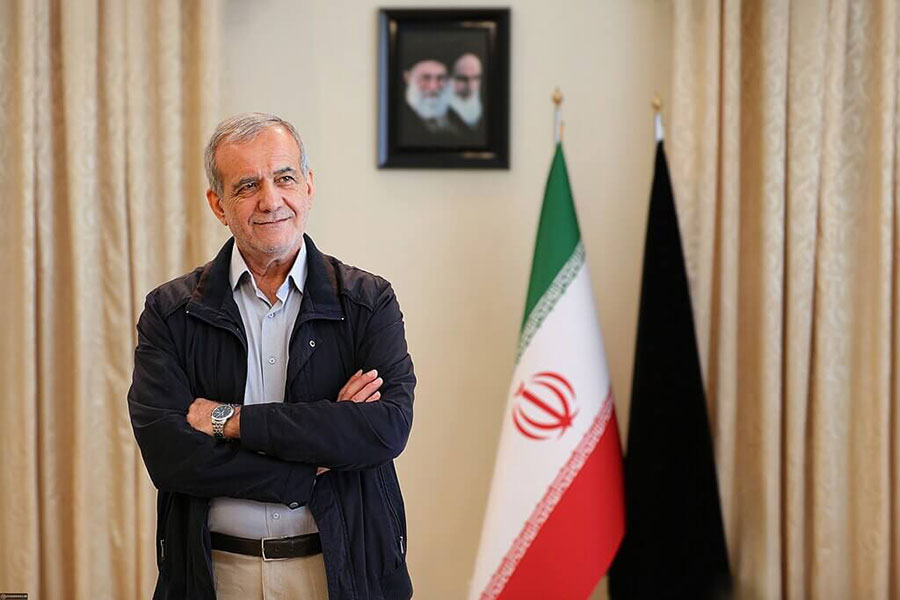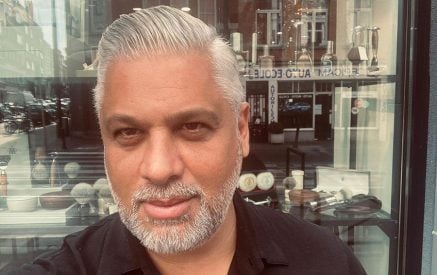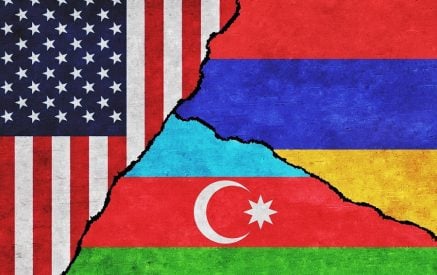EU chief nuclear negotiator Enrique Mora attended Pezeshkian’s formal inauguration but there were no high-level delegations from EU countries
By Eldar Mamedov
Editor’s Note: Eldar Mamedov has deep expertise on European-Iranian relations, having served for more than a decade as a political advisor for social democrats in the European Parliament. He has also been involved in back-channel diplomacy with Iran and the Arab nations of the Persian Gulf.
Read also
By Barbara Slavin, Distinguished Fellow, Middle East Perspectives
Another casualty of the alleged Israeli strike that assassinated the leader of Hamas’ political wing while he was in Tehran for the inauguration of Iran’s new president could well be the prospect of renewed Iranian diplomacy with the U.S. and the European Union.
Iran’s Supreme Leader Ayatollah Ali Khamenei has vowed revenge for what Iran sees as a direct and brazen attack on its sovereignty. A further escalation of tensions between Iran and its “Axis of Resistance” and Israel and its allies would force Europeans to take Israel’s side and likely relegate diplomacy with the new administration in Tehran to the backburner before it even has a chance to start.
In his inauguration speech on July 30, Iranian President Masoud Pezeshkian vowed to normalize Iran’s relations with the world, reflecting Tehran’s need to ease sanctions stifling the economy. His comments built on a vision he outlined soon after his election. While the gap with Europe has widened over Iran’s expanding nuclear program, support for Russia in Ukraine, differences over the Israel-Gaza war and domestic repression, Pezeshkian set out areas where cooperation would be possible, including trade, energy security, transit routes, environment and combating terrorism and drug trafficking.
Further evidence of his intentions came in the active involvement in his campaign of former foreign minister Javad Zarif — just named his deputy for strategic affairs – and the likely appointment of Zarif’s former deputy Abbas Araqchi as foreign minister. Both were key architects of the 2015 Joint Comprehensive Plan of Action (JCPOA). Khamenei sounded similarly conciliatory in remarks at a July 28 ceremony endorsing Pezeshkian’s presidency.
However, the July 31 assassination of Ismail Haniyeh in a supposedly well-guarded Tehran guest house risks derailing that agenda by re-empowering Iranian hardliners and discrediting the idea of talks with the West.
Initial European reaction also seemed to validate the hardliners’ views.
German Foreign Minister Annalena Baerbock singled out Iran in her urgings to all parties to exercise restraint. Britain and France, at an emergency U.N. Security Council session on July 31, also primarily blamed Iran, a supporter of Hamas, for the dangerous escalation in the region.
Even before Haniyeh was killed, attempts at renewed diplomacy faced an uphill battle. On the European side, the spokesperson of the European External Action Service (EEAS), headed by EU high representative for foreign policy Josep Borrell, congratulated Pezeshkian and expressed readiness to talk “in line with EU policy of critical engagement.” The EEAS deputy secretary general and chief EU nuclear negotiator Enrique Mora attended Pezeshkian’s inauguration. He met with Araqchi and posted on the social media platform X: “Good to recover contact with @araghchi in a new chapter for Iran. Looking forward to working with him again.”
Borrell’s predecessor Federica Mogherini was present at Hassan Rouhani’s inauguration in 2017. But even the modest step of sending Mora this time aroused hostility in some quarters of the EU. The foreign affairs spokesman for the European Conservatives and Reformists (ECR), a far-right group in the European Parliament, sent an open letter to Borrell urging him to reconsider the decision to send Mora and generally adopt a harder line on Iran. Hannah Neumann of the Green Party, the new chair of the parliament’s delegation for relations with Iran, also lashed out at Mora for essentially doing his job – promoting diplomacy with Tehran, at the instructions of Borrell. She also claimed that his presence in Tehran was “legitimizing the new Iranian president,” as if the election of a proponent of dialogue with Europe was a bad thing.
Such stances increasingly permeate the mainstream view of Iran in Europe. In a keynote speech at the Manama Dialogue in 2022, the President of the European Commission Ursula von der Leyen, who just secured a second term at the helm of the body, seemed to repudiate the EU’s traditional line of balanced engagement with actors in the Persian Gulf in favor of a more hawkish view of Iran as the principal security threat in the region. After the horrific Hamas attack on Israel on October 7, 2023, von der Leyen doubled down, accusing Tehran of seeking to foment violence and chaos in the Middle East.
Borrell’s successor as the high representative for EU foreign policy, former Estonian Prime Minister Kaja Kallas, is not known for any particular views on Iran. However, it is highly likely that her approach will be strongly colored by Tehran’s support for Russia in Ukraine and by an influential view in Brussels that sees international politics as a contest between democracies and autocracies. That is meaningful as Kallas will also succeed Borrell as chair of the joint commission responsible for the implementation of the JCPOA.
While the Brussels pillar of diplomacy with Iran may be weakening, the situation is also worrisome on the level of individual European states, particularly the E3 – the UK, France, and Germany – that drive Europe’s policy towards Iran.
French President Emmanuel Macron called Pezeshkian to congratulate him but also warned against Iran’s continued support for Russia and urged Iran to prevent a wider war between Israel and Lebanon. The election of a new, Labour-led government in Britain could, however, potentially signal a more flexible approach to Tehran.
Of the E3 nations, relations with Germany have suffered the sharpest downturn. The government in Berlin, especially the Green Party which controls the foreign ministry, was heavily influenced by the narratives of activists of the “Woman, Life, Freedom” movement that massive protests in 2022 against enforced veiling augured a swift collapse of the regime in Tehran. Iran’s support for Russia in Ukraine and Hamas in Gaza has further fueled animosity in Germany.
On July 24, following an intense public pressure campaign, German authorities closed the Islamic Center in Hamburg, alleging it was a focal point for pro-Iranian activities. The center was founded in 1962 by the then shah of Iran and was once led by reformist cleric Mohammad Khatami who served as president of Iran from 1997-2005. The main opposition party, the center-right Christian-Democratic Union, which is likely to return to power in next year’s elections, also published a position paper on Iran that all but endorsed regime change.
More consequentially, the E3 tabled a resolution to censure Iranian nuclear advances at the June 2024 meeting of the International Atomic Energy Agency (IAEA) initially against U.S. opposition. This increasingly critical view of nuclear diplomacy with Iran is worrying given a looming deadline – October 2025 – for the expiration of UN Security Council Resolution 2231, which enshrined the JCPOA. According to the resolution, any party can “snap back” UN sanctions against Iran without facing a veto from one of five permanent members of the body. Since the United States is not a part of the JCPOA anymore, and Russia and China are unlikely to reimpose sanctions on an ally, this leaves the UK or France as candidates to take that step.
If that happens, Iran has threatened to withdraw from the Non-Proliferation Treaty (NPT) and possibly dash for nuclear weapons, which would be profoundly destabilizing to European and global security.
The most sensible path forward for the E3/EU would be to use the advent of a new administration in Iran to re-engage diplomatically on the nuclear issue. Even if the option of reviving the JCPOA seems far-fetched, a new understanding based on the same premises – curbs on Iran’s nuclear program in exchange for sanctions relief – could be pursued. If successful, a reinvigorated or new deal could create space for changes in other Iranian policies.
The coalition behind Pezeshkian, notably including Zarif, is more skeptical about Iran’s turn toward Russia than the hardline ideologues who staffed the administration of the late President Ebrahim Raisi. Reformists are likely to seek to balance relationships – not to cut ties to Moscow, but to diversify them — with Europe potentially playing a role in this diversification drive.
A positive response from Europe, particularly on the economic front, would lessen Tehran’s incentives to prioritize ties with Moscow. One concrete step would be for the EU to assist Iran in meeting the requirements of the Financial Action Task Force (FATF), the global watchdog against money laundering and terrorism financing. During the campaign, Pezeshkian expressed an interest in getting Iran off the FATF blacklist, which is crucial to improving Iran’s business climate. With time, Iran could even evolve along the lines of hedging middle powers, such as Turkey, Brazil, India or South Africa.
The broader region may also favor such engagement. Saudi Arabia and the United Arab Emirates’ drive for de-escalation and re-engagement with Iran has made von der Leyen’s 2022 pitch to build a regional alliance against Iran sound outdated. Even Bahrain, formerly Iran’s most implacable foe in the Gulf, is normalizing relations with Tehran. Much, of course, will depend on whether the conflict in the Middle East further escalates as well as on the outcome of U.S. presidential elections. A win by Democrat Kamala Harris would give Iran and the U.S. four years to improve their relationship before both Pezeshkian and Harris face re-election. Even Donald Trump, despite his bellicose rhetoric, might be interested in a deal with Iran at some point if he returns to the White House. Since the U.S. lacks formal diplomatic relations with Iran, while most Europeans still have ambassadors in Tehran, Europe should use its remaining convening power to support new diplomacy with Iran just as it once pioneered the talks that led to the JCPOA.
Eldar Mamedov is a Brussels-based foreign policy expert. A former Latvian diplomat, from 2009 to 2023 Mamedov served as a political advisor for social democrats in the Foreign Affairs Committee of the European Parliament (EP) and was in charge of the EP delegations for inter-parliamentary relations with Iran, Iraq, and the Arabian Peninsula.























































